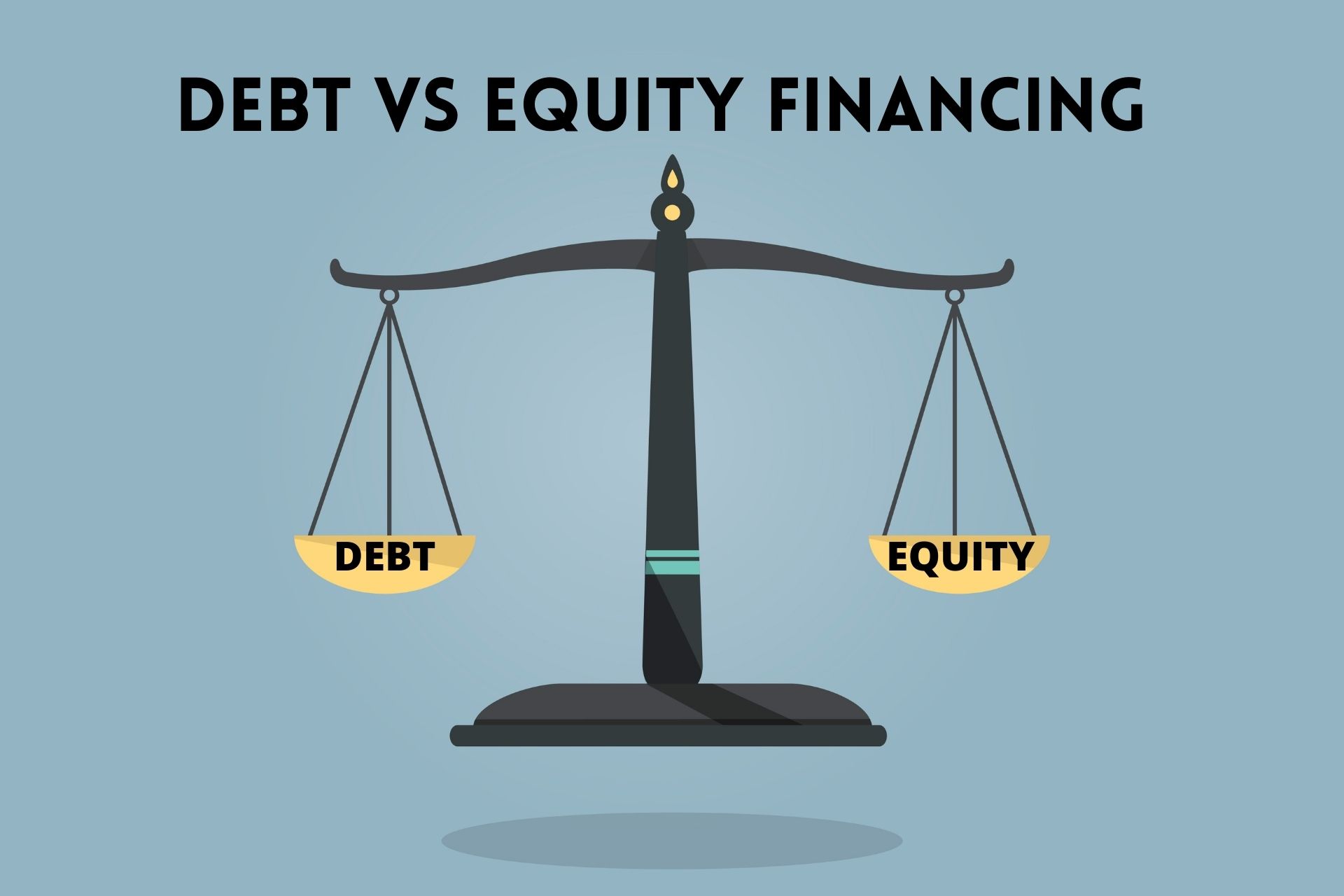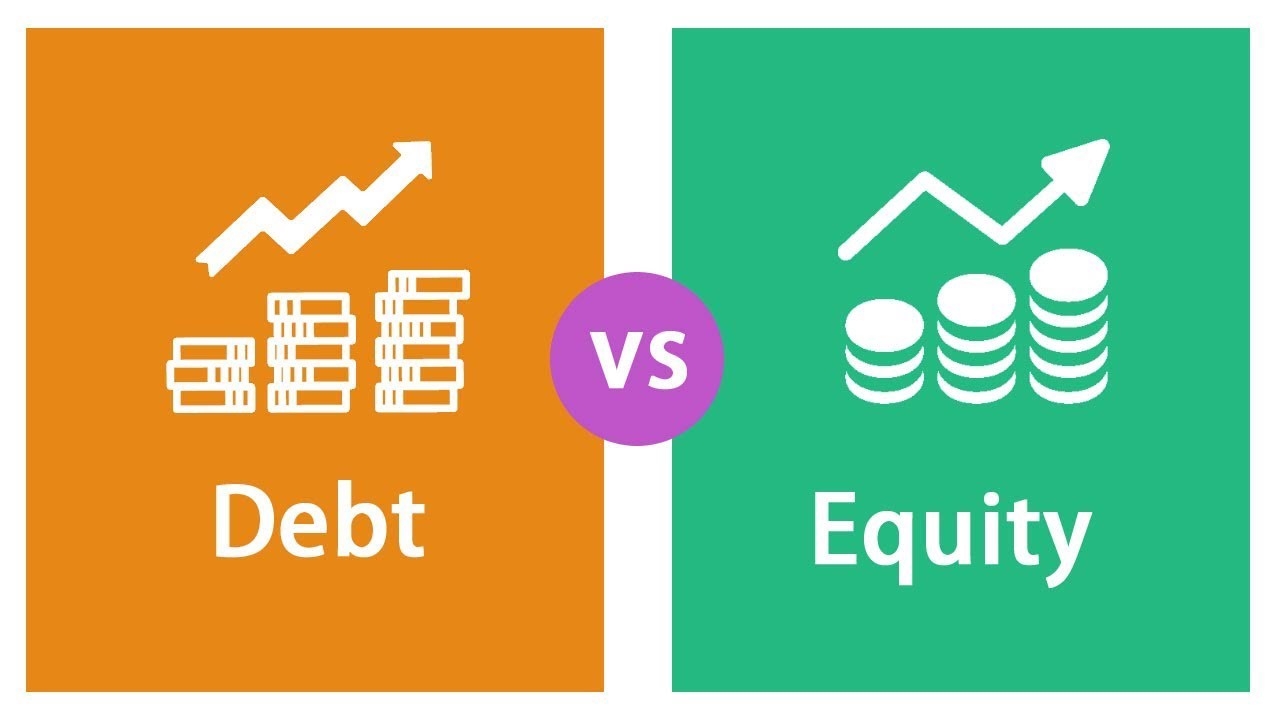

Finance
What Is Equity Financing In Business
Published: January 3, 2024
Learn the benefits and process of equity financing in business. Finance your venture with equity capital and gain long-term funding and strategic partnerships.
(Many of the links in this article redirect to a specific reviewed product. Your purchase of these products through affiliate links helps to generate commission for LiveWell, at no extra cost. Learn more)
Table of Contents
Introduction
Welcome to the world of finance, where businesses utilize various methods to raise capital for their operations and growth. One such method is equity financing, which plays a crucial role in the financial landscape. Whether you are an entrepreneur seeking funding for your startup or a seasoned business owner looking to expand, understanding equity financing is essential for achieving your goals.
Equity financing, also known as equity funding, is a method of raising capital by selling shares or ownership interests in a business to investors. In return for their investment, these investors become partial owners of the company and benefit from its future success. Equity financing serves as an alternative to traditional debt financing, where businesses take on loans or issue bonds to acquire funds.
Equity financing offers numerous advantages and disadvantages for both businesses and investors. By understanding the intricacies of equity financing, you can make informed decisions about whether it is the right choice for your business needs.
In this article, we will delve deeper into the world of equity financing, exploring its definition, advantages, disadvantages, and key considerations. We will also examine different types of equity financing and provide examples to illustrate how it works in real-world scenarios.
Definition of Equity Financing
Equity financing is a method of raising capital for a business by selling shares or ownership interests to investors. In this type of funding, investors provide funds in exchange for ownership stakes, allowing them to participate in the company’s profits and future growth. Unlike debt financing, equity financing does not involve borrowing money that needs to be repaid with interest.
When a business decides to pursue equity financing, it issues equity securities such as stocks or shares. These securities represent ownership rights in the company and grant investors certain privileges, such as voting rights, dividends, and a claim on the company’s assets. The value of these securities can fluctuate based on various factors, including the company’s performance and overall market conditions.
Equity financing is commonly used by startups and early-stage companies that may not have sufficient cash flow or collateral to secure traditional loans. It offers a way for these businesses to raise funds without taking on additional debt or making regular interest payments. Additionally, equity financing can provide more flexibility in terms of repayment and often comes with additional benefits, such as access to the investors’ network and expertise.
It is important to note that equity financing does come with its own set of implications. By selling ownership interests in the company, the business relinquishes a portion of its control and decision-making authority to the investors. This means that investors may have a say in strategic decisions and may influence the direction of the company. However, for many businesses, the benefits of equity financing outweigh the potential loss of control.
Overall, equity financing serves as a vital tool for businesses to raise capital and fuel their growth. It allows companies to access funds, expertise, and resources from investors, while investors have the opportunity to support promising ventures and potentially earn significant returns on their investments.
Advantages of Equity Financing
Equity financing offers several advantages for both businesses and investors. Let’s explore some of the key benefits of this funding method:
- No Debt Obligation: Unlike debt financing, equity financing does not create any debt obligations for the business. This means that the company does not have to make regular interest payments or worry about repaying the principal amount. This can help alleviate financial pressure, especially for startups and small businesses with limited cash flow.
- Shared Risk: With equity financing, the risk of the business is shared among the investors. If the business fails or faces financial difficulties, the burden is not solely placed on the company, but is also distributed among the investors. This can provide a sense of security for the business and reduce the overall risk of failure.
- Access to Expertise and Networks: Equity financing often brings investors who have industry expertise and valuable networks. These investors can provide guidance, mentorship, and access to resources that can help the business grow and succeed. They may have connections to potential customers, suppliers, and strategic partners, which can open doors to new opportunities.
- Long-Term Partnership: Equity financing creates a long-term partnership between the business and its investors. Unlike loan repayments, which have a definite end date, equity investors have a vested interest in the ongoing success of the business. This can align the interests of the investors and the business, fostering a mutually beneficial relationship.
- Potential for High Returns: Equity financing provides investors with the potential for high returns on their investment. As the business grows and becomes more successful, the value of the company increases, thereby increasing the value of the investors’ ownership stake. If the business goes public or is acquired, investors may realize significant gains on their initial investment.
These advantages make equity financing an attractive option for businesses seeking capital and investors looking for opportunities to grow their wealth. However, it is important to weigh these benefits against the potential drawbacks and carefully consider the specific needs and goals of the business before pursuing equity financing.
Disadvantages of Equity Financing
While equity financing offers numerous advantages, it is essential to be aware of its potential drawbacks. Here are some of the disadvantages associated with equity financing:
- Loss of Control: When a business raises capital through equity financing, it dilutes its ownership by selling shares or ownership interests. This means that the business owner or founders may have to share decision-making authority with the investors. Significant equity investors may have voting rights and the ability to influence key strategic decisions, potentially leading to a loss of control for the original founders.
- Sharing Profits: Equity financing involves sharing the profits of the business with the investors. As the business generates profitability, it is obligated to distribute dividends or other profit-sharing arrangements to the shareholders. This can result in a reduction of the business’s retained earnings and limit its ability to reinvest profits for growth.
- Overvaluation or Undervaluation: Determining the valuation of a business during equity financing can be complex. Overvaluation may result in a higher share price, which could lead to inflated expectations from investors. On the other hand, undervaluation may result in the business selling a larger portion of its ownership for a lower valuation, potentially limiting the founder’s potential gains in the future.
- Reporting and Compliance: When a business has external equity investors, it may be required to comply with reporting and regulatory requirements. This can involve preparing and providing regular financial statements, disclosures, and other compliance-related documents. Meeting these compliance obligations can be time-consuming and costly for the business.
- Loss of Privacy: Equity financing may require the disclosure of sensitive business information to potential investors. While necessary for making informed investment decisions, this heightened transparency can compromise the privacy and confidentiality of the business’s operations, strategies, and intellectual property.
It is crucial for businesses considering equity financing to carefully weigh these disadvantages against the benefits. The trade-off between ownership, control, and access to capital should be evaluated based on the specific circumstances of the business and its long-term goals.
Types of Equity Financing
Equity financing encompasses various methods through which businesses can raise capital by selling ownership interests. Let’s explore some of the common types of equity financing:
- Angel Investors: Angel investors are typically high-net-worth individuals who provide early-stage funding to startups in exchange for an ownership stake. These investors often bring industry experience and contacts to the table, along with capital.
- Venture Capital: Venture capital firms invest in startups and early-stage companies with high growth potential. In addition to funding, venture capitalists provide strategic guidance and mentorship. They typically invest larger amounts of capital and acquire a significant ownership stake.
- Private Equity: Private equity firms invest in established businesses with the aim of improving their operations, profitability, and value. They often target companies with a proven track record and potential for growth. Private equity investors may acquire a controlling stake and work closely with management to drive growth and increase the value of the business.
- Initial Public Offering (IPO): An IPO is the process by which a private company goes public by offering shares to the general public. This allows the company to raise significant capital and provides liquidity for existing shareholders. While an IPO can be complex and time-consuming, it can be a transformative event for a business.
- Crowdfunding: Crowdfunding platforms allow businesses to raise funds from a large number of individuals, typically through online platforms. Equity crowdfunding enables individuals to invest in a business in exchange for shares or ownership interests. This method has gained popularity in recent years, mainly for startups and small businesses.
- Strategic Partnerships: Strategic partnerships involve collaboration between two or more companies that bring complementary strengths and resources to the table. In some cases, a strategic partner may invest capital in exchange for an ownership stake. This type of equity financing can provide access to specialized resources, technology, and distribution channels.
It is essential for businesses to consider the specific requirements, benefits, and risks associated with each type of equity financing. Evaluating factors such as the stage of the business, growth potential, and the expertise and network of potential investors can help determine the most suitable type of equity financing for a particular situation.
How Does Equity Financing Work?
Equity financing involves several key steps and processes. Let’s take a closer look at how equity financing typically works:
- Business Evaluation: Before pursuing equity financing, a business needs to evaluate its financial needs and growth potential. The company’s valuation is determined based on its current financial status, market position, intellectual property, potential for growth, and other factors.
- Investor Search: The next step involves identifying potential investors who are interested in investing in the business. This can include angel investors, venture capitalists, private equity firms, or strategic partners. Networking, attending industry events, and utilizing professional connections can help in finding suitable investors.
- Business Pitch: Once potential investors have been identified, the business prepares a compelling and comprehensive pitch that outlines its value proposition, market opportunity, growth strategy, and financials. The pitch should highlight the potential for a return on investment and the benefits of investing in the business.
- Negotiation and Due Diligence: If an investor expresses interest, negotiations take place regarding the terms of the investment, including the amount of investment, ownership stake, and any additional agreements or conditions. The investor then conducts due diligence to assess the business’s financials, operations, and potential risks before making a final decision.
- Investment Agreement: Once the negotiation and due diligence process is completed, an investment agreement is created. This agreement outlines the terms and conditions of the investment, including the percentage of ownership, investor rights, expected returns, and any specific obligations or restrictions on both parties.
- Funds Disbursement and Growth: After the investment agreement is signed, the investor provides funds to the business. These funds are used for various purposes, such as product development, marketing, hiring, or expanding operations. The business then works towards achieving its growth objectives with the support of the investor.
- Profit and Exit: As the business grows and generates profits, the investor may receive a share of the profits in the form of dividends or other profit-sharing arrangements, depending on the terms of the investment agreement. Additionally, the investor may exit their investment through methods such as acquisition, initial public offering (IPO), or sale of their stake to another investor.
It is crucial for both the business and the investor to have a clear understanding of the terms and expectations before entering into an equity financing arrangement. This includes a thorough review of the investment agreement, legal considerations, and ongoing communication and collaboration between all parties involved.
Key Considerations for Equity Financing
Equity financing can be a significant decision for both businesses and investors. Before diving into this funding method, it is important to carefully consider the following factors:
- Business Objectives: Clearly define your business objectives and the purpose of seeking equity financing. Determine how much capital is needed, how it will be utilized, and the expected return on investment. Having a solid business plan and growth strategy is crucial in attracting potential investors.
- Valuation and Ownership: Assess the value of your business and determine how much ownership you are willing to give up in exchange for the investment. Valuation methods may vary, so seeking professional advice or conducting market research can help establish a fair valuation for your company.
- Investor Fit: Consider the expertise, network, and industry experience of potential investors. Look for investors who align with your business goals and can provide more than just capital. Research the track record of investors and their involvement with other portfolio companies to ensure a good fit.
- Legal and Regulatory Compliance: Understand the legal and regulatory requirements associated with equity financing. Consult with legal professionals to ensure compliance with securities laws, reporting obligations, and other legal considerations. Failure to comply with regulations can lead to legal consequences and damage the reputation of your business.
- Impact on Ownership and Control: Evaluate the potential impact of equity financing on your ownership and control of the business. Consider how much influence you are willing to give up and the implications of sharing decision-making authority with investors. Striking a balance between capital infusion and retaining control is crucial to maintaining the vision and direction of your business.
- Future Growth and Exit Strategy: Consider the long-term implications of equity financing. Reflect on how the funds raised will facilitate your business’s growth and how it aligns with your exit strategy. Discuss potential exit scenarios with investors to ensure mutual understanding and alignment of goals.
- Financial and Operational Transparency: Prepare to provide financial and operational transparency to potential investors. Be prepared to share information about your business’s financials, cash flow, operations, and growth plans. Transparency builds trust with investors and increases the likelihood of securing their investment.
By carefully considering these key factors, you can make informed decisions about equity financing that align with the objectives and long-term vision of your business. Conducting due diligence, seeking professional advice, and maintaining open communication with potential investors will contribute to a successful equity financing arrangement.
Examples of Equity Financing in Business
Equity financing has played a significant role in the success of many businesses across various industries. Let’s take a look at a few notable examples of equity financing:
- Facebook: In its early stages, Facebook raised substantial equity financing to fuel its growth. Notable investments include venture capital firm Accel Partners, which invested $12.7 million in 2005, and later investments from companies like Microsoft and Russian investment firm Digital Sky Technologies. These investments helped Facebook expand its user base, develop new features, and eventually become one of the most valuable companies in the world.
- Uber: Uber, the ride-hailing giant, has relied on multiple rounds of equity financing to support its rapid expansion. Early investors include venture capital firms such as Benchmark, First Round Capital, and Lowercase Capital. Uber has also attracted large investments from companies like Toyota and Saudi Arabia’s Public Investment Fund. These investments have helped Uber grow its presence globally and diversify into additional services such as UberEATS and Uber Freight.
- SpaceX: SpaceX, the aerospace manufacturer and space transportation company founded by Elon Musk, has raised substantial equity financing to support its ambitious goals. Notable investors include venture capital firms Draper Fisher Jurvetson and Founders Fund, as well as a $1 billion investment from Google in 2015. These investments have helped SpaceX develop and launch revolutionary spacecraft, including the Falcon 9 rocket and the Dragon spacecraft.
- Beyond Meat: Beyond Meat, a plant-based meat substitute company, has attracted significant equity financing to fuel its growth and innovation. Notable investors include venture capital firms such as Kleiner Perkins and Obvious Ventures, as well as strategic investments from companies like Tyson Foods and Leonardo DiCaprio’s Earth Alliance. These investments have enabled Beyond Meat to expand its product offerings, improve manufacturing capabilities, and increase market share in the rapidly growing plant-based protein industry.
- Netflix: In its early years, Netflix relied on equity financing to establish itself as a leading streaming media service. Reed Hastings, the co-founder and CEO, secured investments from venture capital firms such as Technology Crossover Ventures and Accel Partners. Equity financing played a crucial role in the company’s transition from a DVD-by-mail service to an online streaming platform, revolutionizing the way people consume entertainment.
These examples demonstrate how equity financing has played a vital role in the growth and success of businesses across different sectors. Equity investments from venture capital firms, strategic partners, and even large corporations have provided these companies with the necessary funds, expertise, and resources to innovate, expand their operations, and ultimately disrupt their respective industries.
Conclusion
Equity financing is an important method for businesses to raise capital and fuel their growth. By selling ownership interests to investors, businesses can secure funds without taking on additional debt or making regular interest payments. This funding method offers several advantages, including no debt obligation, shared risk, access to expertise and networks, long-term partnerships, and the potential for high returns.
However, equity financing is not without its drawbacks. Businesses should carefully consider the potential loss of control, sharing of profits, valuation risks, reporting and compliance obligations, and loss of privacy that come with equity financing. It is crucial to evaluate the specific needs and goals of the business and to find investors who align with these objectives.
When pursuing equity financing, businesses and investors must go through a series of steps, including business evaluation, investor search, negotiation and due diligence, and the creation of investment agreements. Ongoing financial and operational transparency, as well as strategic planning for future growth and potential exit strategies, are integral parts of the equity financing process.
Notable examples of successful equity financing include Facebook, Uber, SpaceX, Beyond Meat, and Netflix. These companies have raised significant capital through equity financing, allowing them to innovate, expand, and disrupt their industries.
In conclusion, equity financing offers an alternative and potentially advantageous avenue for businesses to raise capital. It provides access to funds, expertise, and networks from investors, giving businesses the resources they need to thrive and succeed. However, it is crucial to carefully consider the potential implications and weigh them against the benefits before pursuing equity financing. With thorough planning, research, and alignment of goals, equity financing can be a valuable tool for businesses to achieve their growth objectives.














